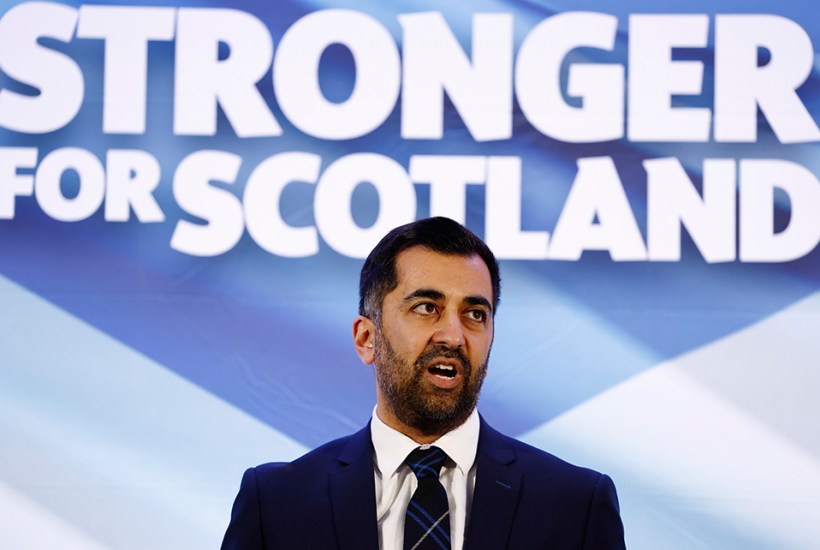Last Friday I found myself in the magnificent Carnegie-funded Central Library in George IV Bridge, Edinburgh. I was due to speak at a Scotonomics conference and, after glancing at some of the more challenging questions that had been sent in advance, concluded that an hour or so’s revision was urgently called for on the respective attributes of new monetarism and wellbeing economics. Entering the reading room, I was asked by the kind library staff if I had a reading card. ‘Well, I was a regular user as a student,’ I ventured. ‘When was that? Our records go back a fair way,’ they said helpfully. ‘1973,’ I answered. ‘Please fill in the form.’
The conference itself was an erudite and fairly serious affair – as befits a group of people who study the economics of independence on a liquid Friday night in Dundee. I told the assembly that my three favourite economists were Adam Smith, John Maynard Keynes and J.K. Galbraith, which I think is not a bad halfback line, although perhaps not quite green enough to impress this audience. What unifies all three? None was really an economist. Smith was a moral philosopher, Keynes an academic mathematician and market speculator and Galbraith an agriculturalist – thus all three tempered economic theory with practical experience. That’s what made them immortal.
I spent Sunday fielding calls from journalists looking for gossip on the SNP leadership and first minister’s race. The Sunday Mail published a striking front page on the ongoing police investigation into the murky matter of SNP HQ finances – ‘Buy Buy SNP… and hello to the cops!’ But why do they call me? Why would the leader of another nationalist party – Alba – have inside knowledge on the workings of the SNP? Even the now-ex first minister Nicola Sturgeon proclaims she didn’t know about its plummeting membership figures. What I do know is that both frontrunners – Humza Yousaf and Kate Forbes – believed (rightly, as it turns out) that the race would be very closely run. A worrying number of SNP members ended up voting for the self-declared ‘continuity candidate’. Is this really wise when ‘continuity’ means shedding members, voters and support for independence? They seem afflicted with Einstein’s definition of insanity – doing the same thing over and over but expecting different results.
In the end, the race was Humza’s – by a cat’s whisker. On the positive side, he is the first Muslim leader of any country in the western world: a strong declaration of Scotland’s commitment to diversity. That is not an insubstantial moment. Unfortunately, the downsides are also very evident. It’s not that he is Humza ‘Useless’, as the Unionist parties claim. He isn’t. He is better than the tartan Tory leader, Douglas Ross; he’s on a par with Labour’s branch office manager in Edinburgh, Anas Sarwar. It is just that the task facing him is much, much greater. He has to unite a divided party, a fractured national movement, and also convince an increasingly sceptical nation that the SNP has not totally forgotten how to run the country wisely and well.
I doubt if the new First Minister is looking for my advice, but here it is anyway. He should appoint his very best people to key portfolios: finance and health. He needs both Ash Regan and Kate Forbes in the cabinet. Dump the Greens and their daft obsessions. Stop asking Westminster for a referendum (the section 30 referendum cul-de-sac) and instead establish an independence convention. This means front up rather than back-pedal on independence. He should concentrate on self-determination rather than self-identification – and fight every national election on seeking a mandate to negotiate independence. Working through the points on that list won’t, in itself, guarantee success. But not addressing any one of them will invite a comeuppance at next year’s general election.
Being elected first minister by the Scottish parliament is always a great day for the nominee. Even when the vote is sewn up, there is a tendency to sit there waiting and wondering what could possibly go wrong. Will one of the beams fall off the roof? Will the presiding officer have a brain storm? In Humza’s case, the nomination went well – but he immediately ended up in a car crash by ineptly offering Kate Forbes a demotion which she promptly rejected, returning to the backbenches. It is an early lesson for our new First Minister on the scope and limitations of power. He may feel safer with his bosom pals in the top jobs – but he will not be stronger. And he may not be there long.
Got something to add? Join the discussion and comment below.
Get 10 issues for just $10
Subscribe to The Spectator Australia today for the next 10 magazine issues, plus full online access, for just $10.
You might disagree with half of it, but you’ll enjoy reading all of it. Try your first month for free, then just $2 a week for the remainder of your first year.








Comments
Don't miss out
Join the conversation with other Spectator Australia readers. Subscribe to leave a comment.
SUBSCRIBEAlready a subscriber? Log in